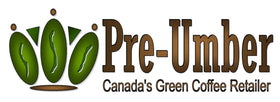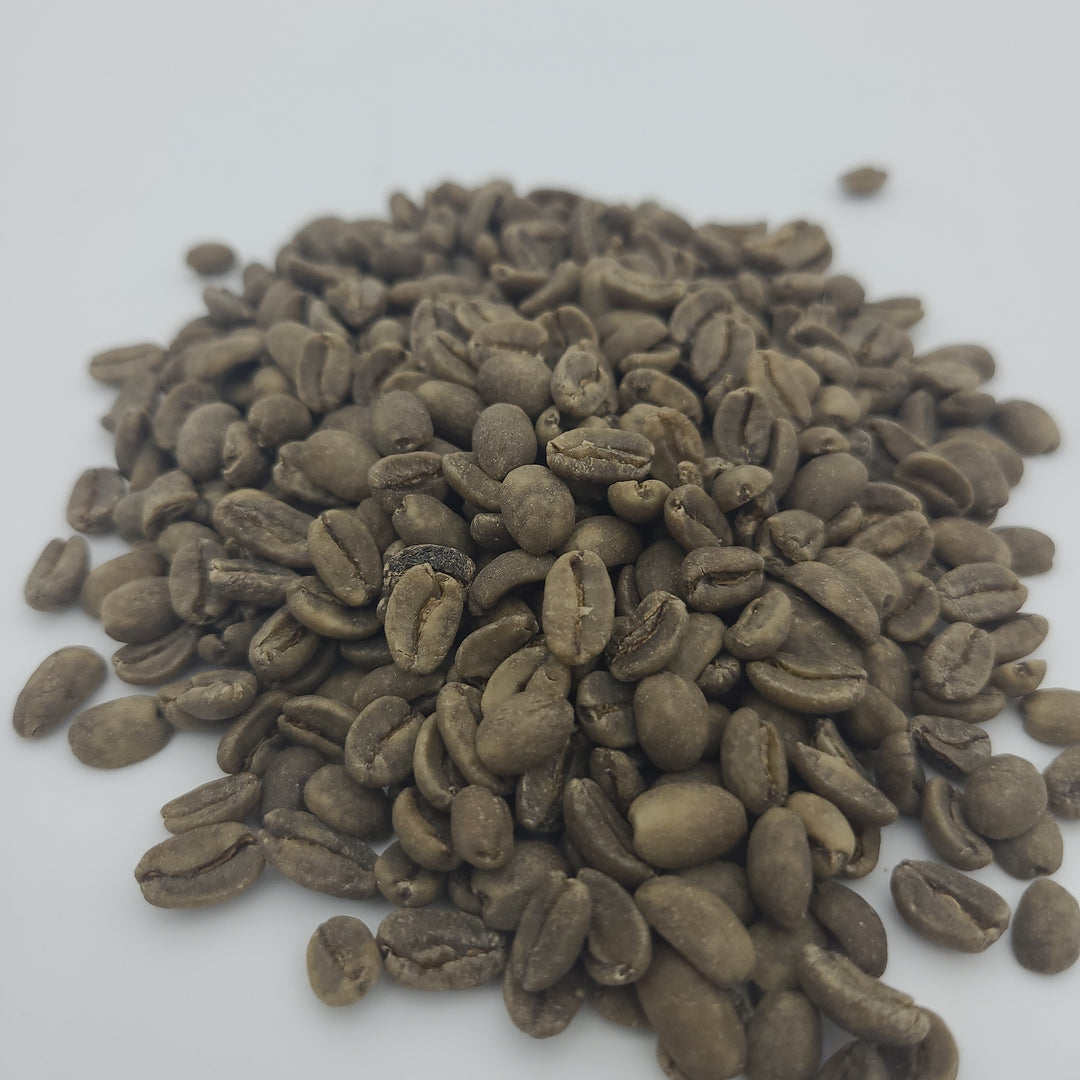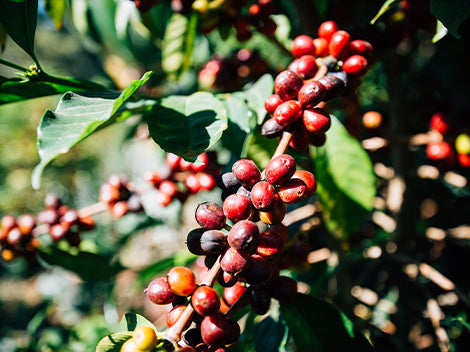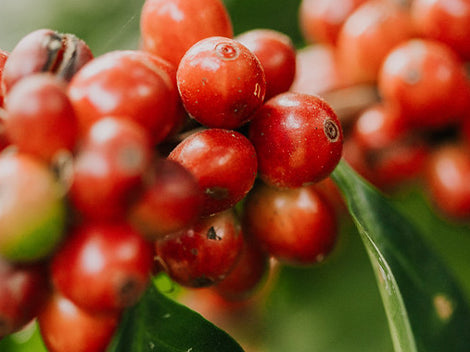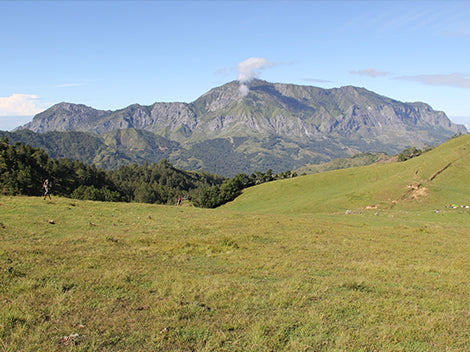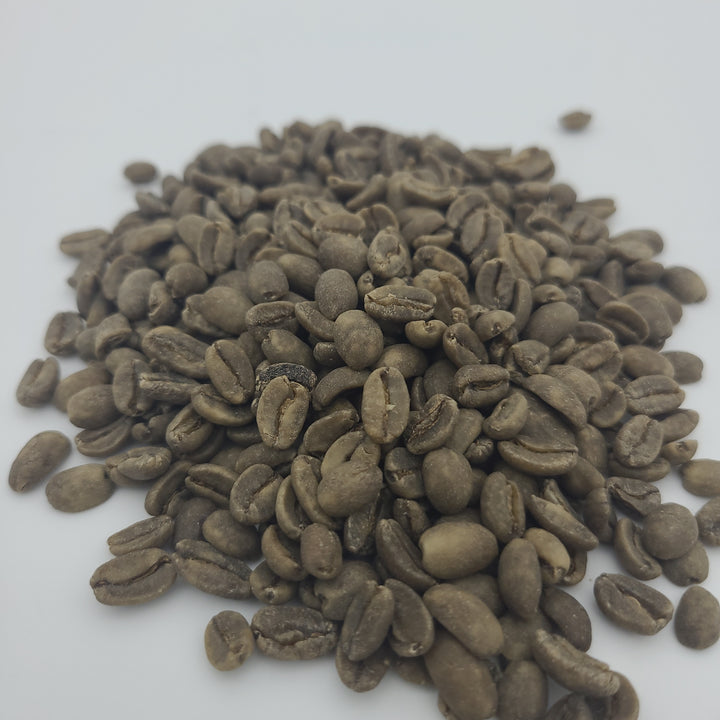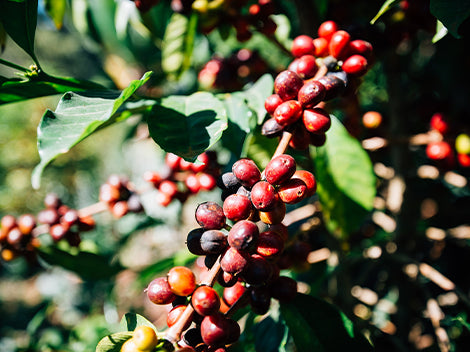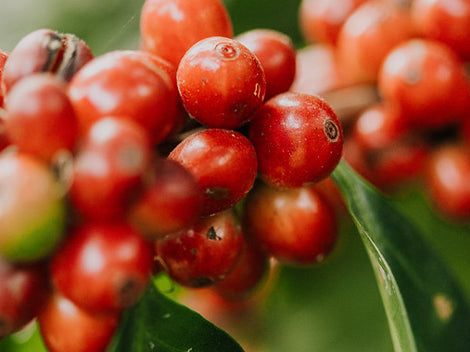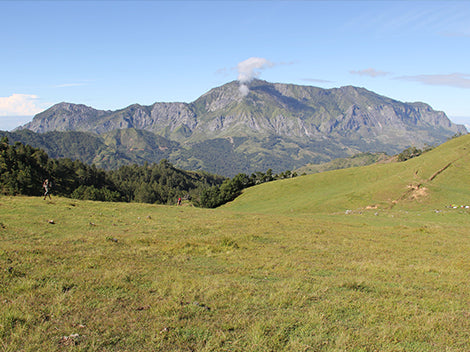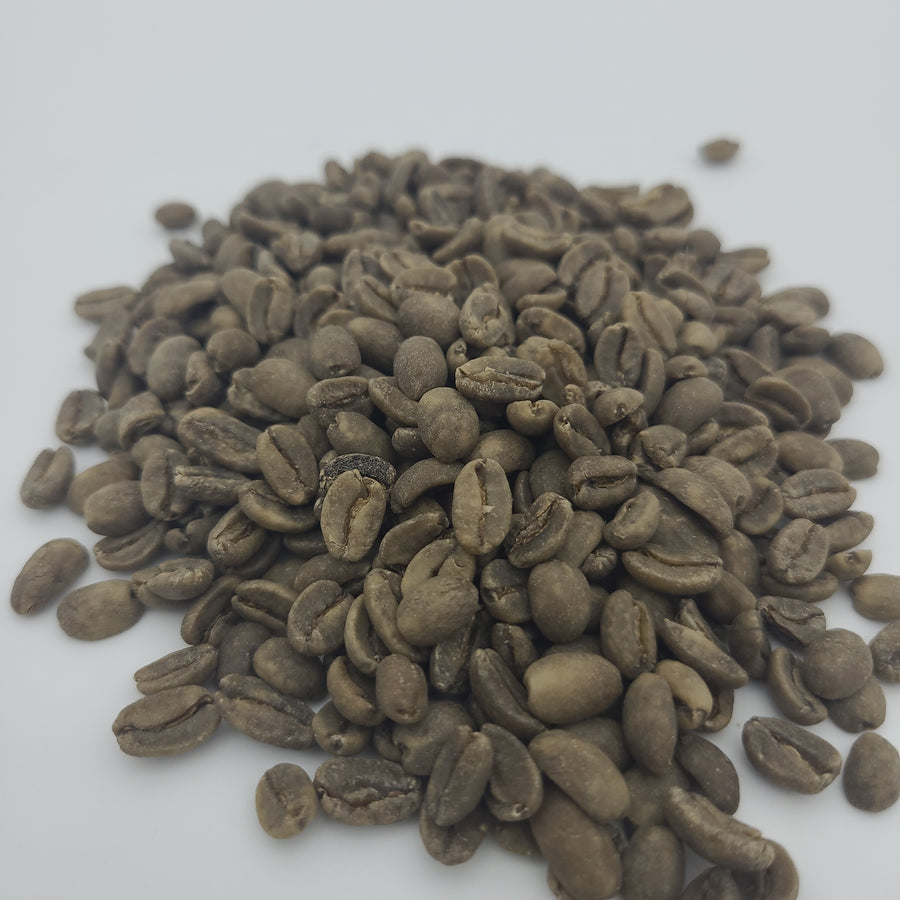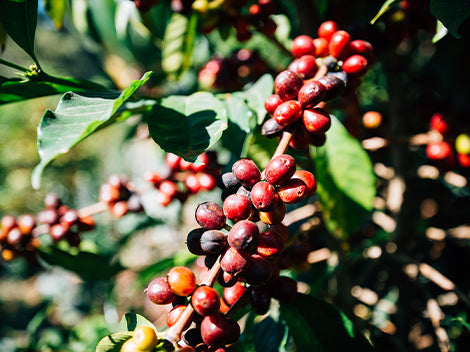Cupping Notes: Brownie, black grape, raspberry parfait, strawberry, white tea
Country Of Origin: Papua New Guinea
Region: Eastern Highlands
Producer Type: Small Holder Farmers
Processing: Washed
Plant Species: Arabica
Varietals: Arusha, Bourbon, Mundo Novo
Certifications: Organic
About This Coffee
The Swiss Water® Process uses pure green coffee extract and proprietary carbon technology to remove caffeine from green coffee beans. Swiss Water® has specified the pore size of the carbon to match the caffeine molecule to ensure only the caffeine is trapped when the caffeine is captured from the green coffee extract.
From the seaside city of Lae on the east coast of Papua New Guinea, the Highland Highway winds for 200 miles and climbs 5,000 feet to reach Goroka, the center of coffee cultivation for the region. In the Eastern Highlands much of the coffee is still grown on very small “garden” plots alongside household subsistence crops. In the highlands, morning fog fills the valleys and the mountain peaks float above in the sun, the highest reaching nearly 15,000 feet. As the fog lifts, so does the chill. Clouds gather, and the afternoon warmth is often accompanied by fierce thunderstorms, which vanish as suddenly as they appear, making room for the whole cycle to start over again, and ideal climate for growing coffee.
History of Coffee in Papua New Guinea
Compared to the speed with which Europeans colonized other parts of the world, they seemed to spill over Oceania in slow motion. So, although the highlands of PNG are textbook coffee land, commercial coffee production was not established until 1928. In typical British colonial style, coffee was initially grown on plantations (though atypically planted with Blue Mountain from Jamaica). The history of colonial New Guinea mirrors that of central Africa. Feeling left out of the general expansionist trend, Germany grabbed a portion of northern New Guinea in the late 1800’s and then lost it during WWI. The Japanese invaded PNG during WWII and the island saw fierce fighting for much of the war. For most of the 20th century, administrative responsibility for PNG and its ever evolving configuration (and name) rested with Australia.
Growing Coffee in Papua New Guinea
Although PNG has often produced more than 1 million bags of coffee annually, the average has dropped below 1 million over the last 10 years. The vast majority of coffee in PNG (95%) is grown in the highland regions near the center of the country. These coffee exhibit the heavy body characteristic of this part of the world along with the savory sweet flavors. Coffee from PNG is graded using a unique matrix that reflects not only screen size but bean shape, defect count, and color in addition to aroma and cup quality with A/X, being the highest quality available.
Pre-Umber is happy to offer our customers free shipping on all orders over $100.00 (Northwest Territories, Nunavut and the Yukon there is a flat rate fee)- and as a bonus, we always offer free shipping on the Aerobie Aeropress Permanent filters! Orders qualifying for free shipping will be sent via Canada Post Expedited Parcel service. You will also have the option to choose a faster Canada Post service if you prefer.
If your cart just doesn't seem to total up to $100.00, don't worry. Pre-Umber offers real-time carrier shipping through Canada Post. Just go through the checkout process until you see the shipping charges options. You can choose various Canada Post options depending on how badly you need your coffee :) You will see real-time pricing so you can rest assured knowing exactly what you will be charged.
Pre-Umber wants you to enjoy your coffee or merchandise as soon as we can get it to you, so we always strive to send your order out within 24 hours of having received it.
To see the Canada Post delivery standards please follow this link and use our Postal code T4J1R1. Delivery Standards
At this time Pre-Umber only ships within Canada.

